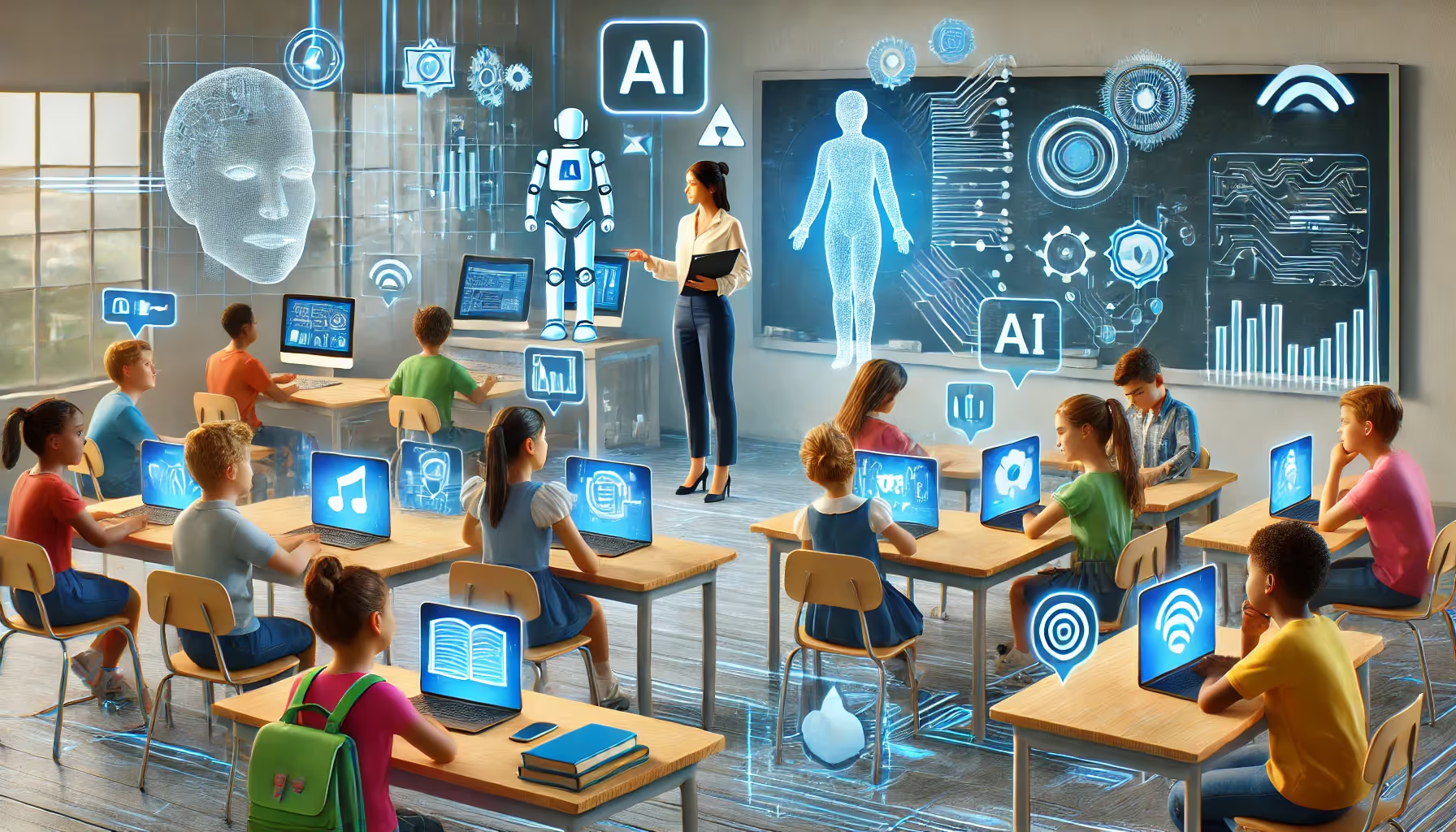
AI in education
Artificial intelligence (AI) is reshaping education by enabling personalized learning, intelligent tutoring, and automating administrative tasks, thus allowing teachers more time for student engagement. While AI offers inclusivity and valuable data insights, its integration must carefully address privacy, ethics, and the irreplaceable human element in teaching.

Source: Openex.com
Reading time: 4 minutes
AI in Education: How Technology is Transforming the Future of Learning
Artificial intelligence (AI) is reshaping how we work, communicate, and most importantly, learn. In the education sector, AI offers unprecedented opportunities, from personalized learning experiences to streamlined school operations. But how can schools fully harness the potential of this technology? In this article, we explore the possibilities, advantages, and challenges of AI in education and its transformative impact on learning.
Opportunities of AI in Education
AI introduces a new wave of innovation in education, presenting numerous opportunities alongside unique challenges. Here are the primary possibilities:
- Personalized Learning
AI facilitates customized learning by adapting educational content to the needs of individual students. Adaptive learning systems analyze a student’s progress and preferences, adjusting difficulty levels, content, or teaching methods accordingly. This approach supports students requiring extra help while challenging advanced learners to progress further.
- Intelligent Tutors
Virtual tutors, such as chatbots and voice assistants, provide additional support outside the classroom. These AI-driven tools can answer questions, assist with homework, and even boost student motivation. Teachers can program these tools to offer tailored assistance.
- Teacher Efficiency
AI can take over routine tasks such as grading exams or managing administrative duties. This allows teachers to focus more on teaching and providing personal attention to students.
- Accessibility and Inclusion
AI has the potential to transform education for students with special needs. Speech-to-text technologies, translation apps, and learning tools make education more accessible to those with disabilities or language barriers, fostering inclusivity.
- Data-Driven Insights
By analyzing vast amounts of data, AI can identify trends and patterns in educational outcomes. Schools can use these insights to improve curricula, optimize learning outcomes, and address potential challenges early.
Benefits of AI in Education
AI brings significant benefits to the educational landscape. The most notable advantages include:
- More Time for Personal Engagement: By automating repetitive tasks, educators can focus on inspiring and guiding their students.
- Flexibility: AI-powered learning tools are available 24/7, enabling students to learn at their own pace and schedule.
- Equity: Personalized learning and accessible tools create opportunities for diverse student groups, leveling the educational playing field.
Challenges and Considerations
Despite its promising advantages, AI in education comes with challenges that must be addressed:
- Privacy:
Managing Data Responsibly Using AI in education requires access to large datasets, raising questions about how this data is collected, stored, and protected. Schools and tech companies must adhere to strict privacy regulations to safeguard student information.
- Human Interaction:
Complementing, Not Replacing While AI can do a lot, it cannot replicate the human interaction and emotional intelligence of a teacher. Striking a balance between technology and personal engagement is crucial.
- Access to AI Technology:
Not all schools and students have access to the resources needed to benefit from AI. Addressing this disparity requires national policies that promote equal access through subsidies, open-source AI tools, and investments in infrastructure and teacher training.
- Ethical Considerations:
AI systems can inadvertently reinforce biases, leading to inequalities in education. Schools and developers must rigorously test AI models in controlled environments to ensure fairness and transparency.
 Image source: Openexo
Image source: Openexo
The Future of AI in Education
The future of AI in education is bright. As technology evolves, new applications will emerge, enriching and democratizing learning opportunities. However, ethical considerations, privacy concerns, and equal access must remain at the forefront of this transformation. At Lumans, we believe in AI’s power to drive positive change, especially in education. Through practical and informative workshops, we support educational institutions in understanding and implementing AI solutions that are fair, transparent, and effective.
Conclusion
AI is not a replacement for teachers but a powerful partner in enhancing education and accessibility. By promoting personalized learning, inclusivity, and efficiency, AI presents enormous opportunities. At the same time, its implementation requires careful consideration to keep the human element central to education.
Want to learn more about how AI can revolutionize education? Contact Lumans today and discover how we can help your educational institution implement AI effectively and ethically.
This text is optimized using ChatGPT


